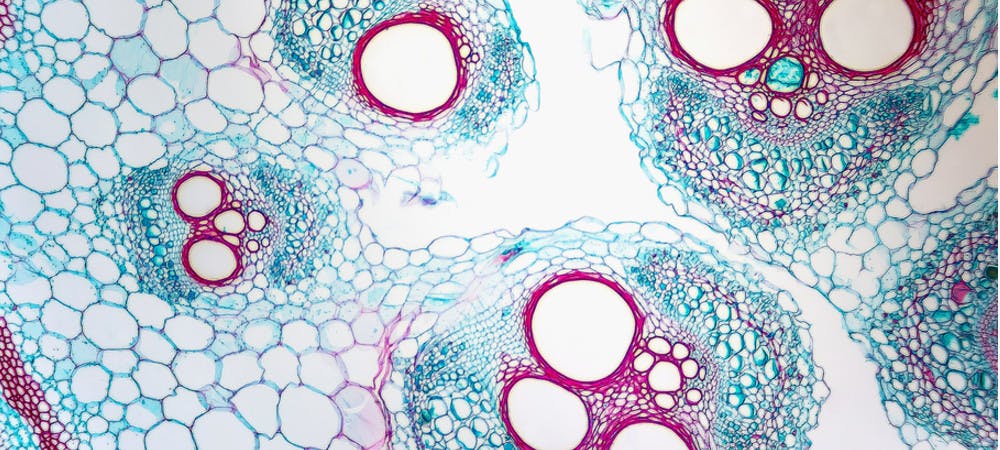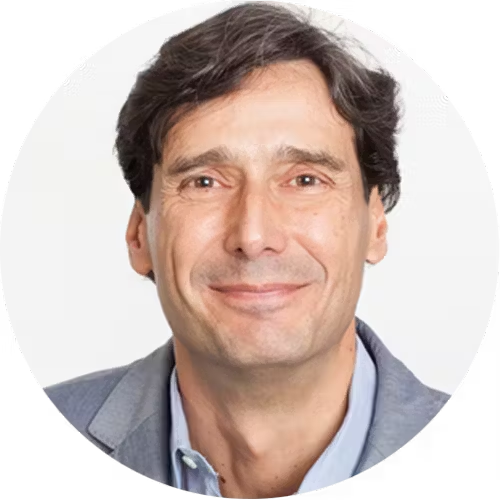Dr. Serrano is an internationally recognized expert in the field of tumor suppression, senescence and aging.
Dr. Serrano, can you please give us your own definition of aging?
Dr. Serrano: I like to define aging as a progressive loss of capacity to maintain and repair tissues. This, in turn, implies a parallel increase in the risk of developing multiple diseases.
What inspired you to focus on molecular biology?
Dr. Serrano: My fascination for molecular biology started when I was a teenager at high school and learned that underneath life there was a world of sophisticated little machines, enzymes, tubes, vesicles, channels, codes, signals, all made up of simple elements. I still find this fascinating and I believe that if we want to understand aging, we have to understand its underlying molecular processes. Furthermore, molecular approaches may lead to pharmacological interventions, as it has been the case with so many human diseases. I am convinced, one day, not too far away, aging will also be controllable, to some extent, using molecular medicines.
What would you say is the most important scientific development in age science and longevity in recent years? How close are we to achieving a significant extension of our healthy life span?
Dr. Serrano: The key developments started in the 90s when scientists realized that small changes in some genes were sufficient to delay the aging of animals. This was a dramatic conceptual change that made us realize that longevity had a genetic component (longevity does not depend exclusively on the genetic makeup, but it is a strong determinant). Scientists feel comfortable with genes, we know how to isolate them, manipulate them, make them stronger or weaker; genes encode proteins that can be purified and studied, that perform functions and that can often be blocked or reinforced with small chemical compounds. After 25 years of applying the methods of molecular biology, our understanding of aging is now very detailed, although still incomplete. The first pharmacological compounds that delay aging in animals have been found, many more will be found and refined in the next years, and some of them will likely be active in humans.
How does our ability to repair and reprogram cells contribute to our longevity and health preservation? Is there a direct relationship?
Dr. Serrano: This is a difficult question. Unfortunately, the capacity of scientists to improve tissue repair is still very limited. Tissue repair is an extraordinarily complex process and we understand it very superficially. Nobody has yet found a method to improve tissue repair and ask how this impacts on longevity. Common sense says that longevity should increase if we improve tissue repair, but sometimes common sense plays tricks on us.
The science of understanding the sources of damage is more advanced, compared to tissue repair. Reducing the physiological sources of damage (DNA errors, oxidative damage, loss of telomeres, accumulation of protein aggregates, etc.) has a clear positive impact on longevity in experimental animals.

Nobody has yet found a method to improve tissue repair and ask how this impacts on longevity.
What is the suppressor gene p16 and why is its role in regulating the cell cycle so important?
Dr. Serrano: The gene p16 is a sensor of multiple types of damage and this is what makes it so important. It alerts the cell of the damage, blocking its capacity to proliferate and thereby preventing the emergence of damaged proliferating cells, which are known to be at the origin of cancer. In this way, p16 protects from many types of cancers. P16 also instructs cells to secrete alarm signals to alert and activate inflammatory cells. These inflammatory cells are thus mobilized to the site of damage and eliminate the damaged cells. Small DNA variants in the p16 gene have been associated with the propensity to develop cancer and multiple diseases. P16 is a truly amazing gene responsible for the general protection of the organism against damage.
Part of your research focuses on zombie cells? What are they exactly? Why do we lose the natural ability to eliminate them? What is their correlation with reversing aging?
Dr. Serrano: Zombie cells, technically known as senescent cells, are damaged cells that for reasons we don’t understand yet, are not eliminated by the immune system when we age. These persistent damaged cells, zombie cells, are pathological and directly contribute to many human diseases. The recent discovery of pharmacological compounds that kill zombie cells has demonstrated that killing these damaged cells translates into remarkable therapeutical improvements. This has been observed extensively in animal models and there are some promising indications in humans, particularly in the case of pulmonary fibrosis. Regarding aging, there is evidence in mice that killing senescent cells stops or delays some aspects of aging, with some improvements in longevity. We are in the early days of discovery, I am very optimistic about the potential of anti-senescence therapies.
Please highlight the biggest challenges for regenerative medicine in the next 5-10 years? How will we be able to transfer advances in the laboratory into society?
Dr. Serrano: The bridge between the laboratory and the society is slow, expensive and full of uncertainties. At the same time, and fortunately, there are many bright, brave and generous people determined to contribute in making this journey successful. I don´t have an answer to the question of how to do this translation more efficiently. I think nobody knows, but we all feel that research on aging has a great potential to improve the way we age and this is a great motivation.
How important is diet, what we eat and when we eat in supporting a healthy life span? How does this impact the human body and our ability to regenerate?
Dr. Serrano: This is an area of high interest in general. Research on nutrition has never been so intense, and the goal is to connect nutrition, molecular biology and aging. One of the few concepts widely accepted among scientists on nutrition is that an excess of caloric intake is generally bad for multiple aspects of health, while a balanced caloric intake is beneficial.
What is your secret to healthy longevity? What can we do on a day-to-day basis to live healthily longer?
Dr. Serrano: There is a secret, but it is not mine and is not a secret. Moderate exercise, controlled body weight, and a satisfactory personal and social life are well-known to be the key for a healthy and happy life.

